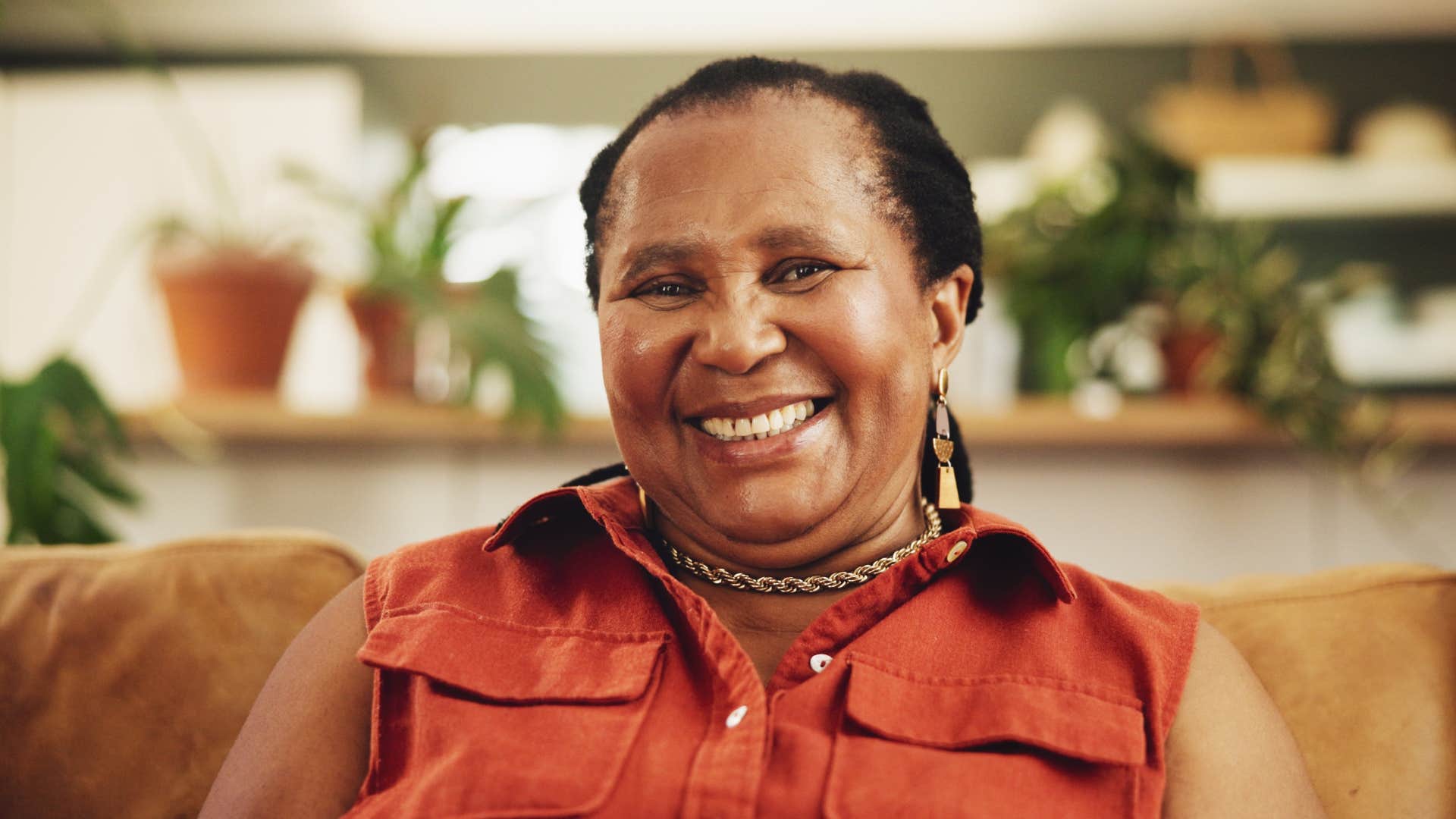Women Over 40 Who Walk Away From Loyal, Loving Spouses Usually Have These 5 Reasons
Love wasn't the issue. But something deeper was missing.
 Kateryna Hliznitsova | Unsplash
Kateryna Hliznitsova | Unsplash Unpopular opinion: Men and women are fundamentally different in how they interact with the world. No one should be held back due to these differences, and some people break the mold. These generalizations can be helpful when talking about societal and relational issues, as long as we recognize they are not a rule for all individuals.
A 2010 study explored how women tend to process their emotions and the emotions of others regularly. Conversely, men don’t regularly do the same. As a result, their ability to process emotions can be stunted. These differences can significantly affect any relationship. A couple's inability to communicate their emotions leads to women over 40 developing in one direction and men in another. So, how does this difference in emotional evolution lead to women walking away from loyal, loving spouses?
Women over 40 who walk away from loyal, loving spouses usually have these five reasons:
1. Emotional disconnection
 Anelo via Shutterstock
Anelo via Shutterstock
Men and women process their emotions differently, leading to disconnection. For women, processing emotions is very important and is something they are very good at doing.
However, men aren’t as good at it, so they often shy away from emotional processing, leaving their wives feeling abandoned. As a result, women often turn away from their husbands and toward other women to process what is happening in their lives.
I know that when I was married, my friends had a lot more awareness about the struggles in our marriage than my husband did. They were open to listening to what I was dealing with and helping me to understand why. They even helped me recognize how I might be able to change things, a plan that I, unfortunately, never implemented.
Instead of connecting with what was going on in our marriage, my husband and I ran our family. We took care of the kids, worked, did chores and errands, and had occasional date nights and occasional intimacy. We didn’t address what was happening in our marriage.
And that, for me, was the kiss of death. Being unable to process with my husband caused a disconnect that we could never overcome.
2. Breakdown of communication
 PeopleImages.com - Yuri A via Shutterstock
PeopleImages.com - Yuri A via Shutterstock
Communication is the foundation on which a marriage is built, as explained in a 2005 study of communication and marital satisfaction. When communication breaks down, a marriage can fall apart. And I believe the difference in emotional evolution between men and women can destroy that breakdown.
Women, mostly, love to communicate. They like to talk about their hopes and dreams, live events, children, things they see and feel, and whatever else pops into their heads.
Men, mostly, find communication more difficult. While they have hopes and dreams, they don’t often verbalize them. They can talk about any sports statistic with expertise, but sharing how they feel about anything is more challenging.
As a result, it seems that men and women speak two different languages in many ways. And if one person speaks in Italian and another in French, the chances of being misunderstood are significant.
The key to preventing these misunderstandings is learning to speak each other’s language, which is often difficult and something that many men are very hesitant to do. I believe not because they don’t want to, but because they don’t know how.
3. Fear of change
 Inside Creative House via Shutterstock
Inside Creative House via Shutterstock
This is, I believe, a huge part of why the different emotional evolutions of men and women lead women over 40 to tend to leave their husbands. Because if they are at different stages of emotional development, their interests diverge.
If there is one trend that I have noticed with my women friends and clients, it’s that, at this age, they are very curious about the world. For them, after many years of being focused on raising a family and running a household, now being given the freedom to pick up their heads and look around that makes this happen is a gift.
Women in their 40s tend to try new things. They take pottery classes or take up running, or dye their hair red. They make new friends, maybe switch careers, wanting to shake things up and make things interesting. They are looking forward to and leaning into this next stage of their lives.
In her 1998 book, Understanding Men’s Passages: Discovering the New Map of Men’s Lives, Gail Sheehy posits: “Many men 40 and over are having a harder time today making a satisfying passage into the second half of their lives than are most women. Why? Women feel pangs over losing their youth. Men feel dread.”
Sheehy says many men may not equate change with growth but with loss, giving up, and failing. When one partner is stuck and scared of change, and the other embraces change and wants to fly, a relationship can be seriously damaged, and a marriage can end.
4. Discomfort with seeking help
 insta_photos via Shutterstock
insta_photos via Shutterstock
Because men are uncomfortable with change, they are often uncomfortable getting help. Research from the Centers for Disease Control showed that women are way more likely than men to receive help with any issues they might struggle with.
As a result, these issues can become increasingly destructive for him as an individual and in his marriage. Unfortunately, this disinterest in seeking help to make the change and to deal with issues can be the death knell of any marriage.
Most women actively seek to deal with their issues, and many want professional couples counseling before they walk away from their marriage. Because many men are uncomfortable seeking help, destructive issues won’t be addressed, and sometimes force a woman to leave.
5. Divergence of interests
 Roman Samborskyi via Shutterstock
Roman Samborskyi via Shutterstock
Because men and women evolve emotionally as they age, many couples find that their interests diverge. Things they might have shared as interests when they were young aren’t necessarily those they share after 40.
A specific example of this is travel. I can’t tell you how many women I know who are over 40 who want to travel. They want to escape their mundane life, get out there, and see and experience new things.
I can’t tell you how many men I know who are over 40 and have no interest in traveling. Many of them tell me they have spent their lives outside of their homes, providing financially for their families, giving up their hobbies because of their chaotic lives, and losing touch with what they have always wanted to do.
As a result, many want to stay close to home, doing the things they love, often with no interest in doing new and different things.
For women, travel can represent transformation. They travel to reflect on who they are in the world, to consider how to make a change, and how to live their best lives.
Unfortunately, these divergent interests can make it hard for a couple to stay in a relationship.
A client of mine recently got married and learned her new husband was willing to travel but would do so grudgingly. She is trying to figure out if she can do this, stay married to a man who doesn’t have the same passion as she does.
How do we change this dynamic? How do we not let the differences in emotional evolution destroy a marriage? Marriage might be saved if both members accept and embrace their differences and work together to make a change.
Mitzi Bockmann is a NYC-based Certified Life Coach who works with individuals who strive to heal their toxic relationships so they can have their happily ever after. Mitzi's bylines have appeared in The Good Men Project, MSN, PopSugar, Prevention, Huffington Post, Psych Central, among many others.

